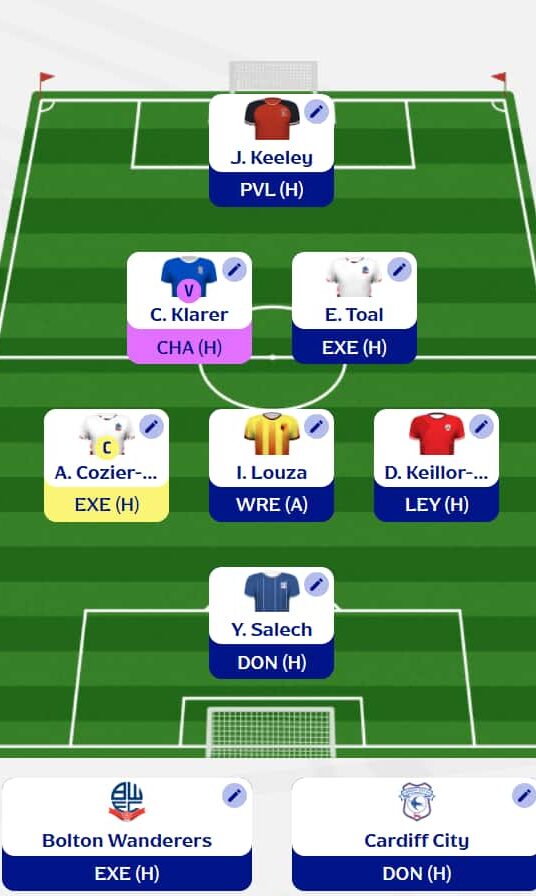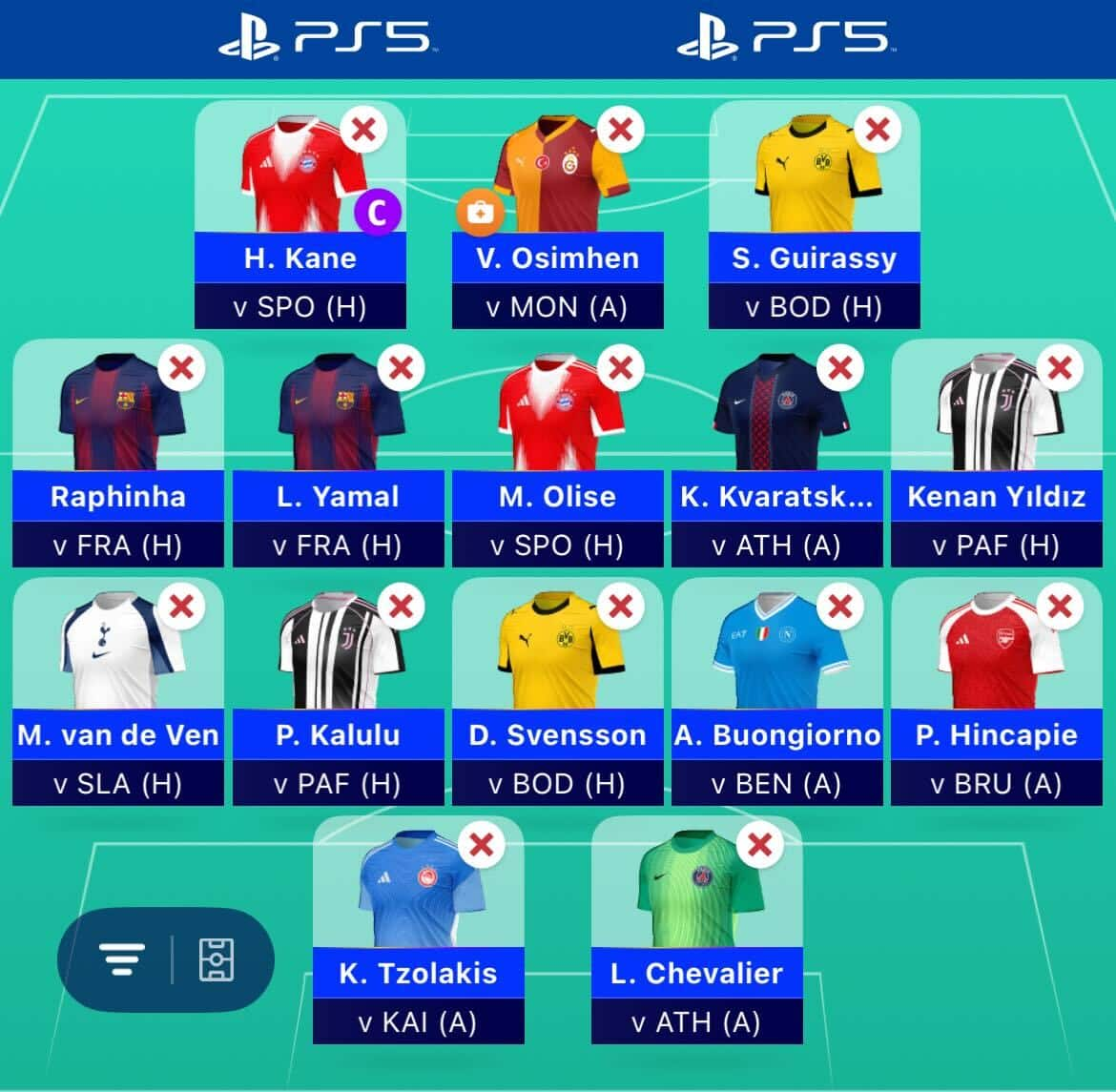In order to do try and paint a better picture of Guardiola’s tactics, I have split Manchester City’s philosophy into two parts: attacking (in possession) and defending (out of possession). By building up an image of how the proverbial ‘cogs’ of Guardiola’s machine interact with each other, it will give us more insight into their style of play. Many of the points will overlap as if woven together into a tapestry of footballing tactics. Finally, we can look at these points in relation to formations to try and identify key players that might be useful in FPL. Because Guardiola’s main influence was Johan Cruyff, the article is littered with quotes from him to emphasise Guardiola’s style.
If we think of Guardiola’s tactics more mathematically, we can also understand his mindset better. The key concept is control. Think of Guardiola as a control freak, who wants to have autonomy over all of the major factors involved in a football match; space, possession, discipline and cohesion. From a statistical point of view, the more uncontrollable factors involved in a football match, the more random the outcome. For example, flipping a coin is 1/2. Scoring at a particular minute in a match is 1/90 (roughly). The odds of your birthday being today is 1/365. But what are the odds of a team winning a coin toss, with their striker scoring on his birthday in the 39th minute? The more variables introduced, the more random the outcome and less probable it becomes. If Guardiola can have his team working like a disciplined machine, they can reduce the randomness of the outcome and weigh the odds in his favour by remaining in control of the factors that govern his approach. So what constitutes their style of play? Let us first look at attack.
Components of Attack (in possession)
Space
We cannot discuss the style of Totaalvoetball and Cruyff without first mentioning space. Cruyff himself stated, “If you have the ball you must make the field as big as possible, and if you don’t have the ball you must make it as small as possible.” We can examine the second bit of that claim later on, but for now let us focus on the first part. Basically we are looking at the expanding of the playing area, using as much space and width on the pitch as possible.
Above, we can see a standard 433 formation broken up into passing triangles. The importance of these triangles mean there is always a passing option within proximity, and the movement of the ball up the pitch opens up space to create scoring opportunities. As we will look at later, the system becomes quite fluid, far from resembling a 433 by the time the ball is near the box. An understanding of this space is crucial to the attacking philosophy of Guardiola. Cruyff reinforces this by saying, “You need to look, you need to think, you need to move, you need to find space, you need to help others. It’s very simple in the end.” But is it really that simple?
Possession
The Dutchman also famously said, “Playing football is very simple, but playing simple football is the hardest thing there is”. It might seem blatantly obvious and needless to say, but the basic principle of having the ball is keeping it. Not only that, but in addition to not losing it, the players must be confident and intelligent on the ball. Cruyff reiterates this when he says, “Without the ball, you can’t win”. Below is the possession percentage and pass accuracy of the teams under Guardiola’s management (in brackets we see how they ranked compared to the rest of the teams in those leagues)
Possession and passing stats of Guardiola’s teams
Notably in 2016/17, the only year Guardiola failed to win the domestic league, we can see the lowest possession percentage and pass accuracy from his whole career. In combination with other factors (mentioned in part one), this gives an idea of why Man City failed to win a single trophy during that season. While it might seem insignificant, success is often determined by the slimmest of margins, and for Guardiola this reduction in possession and accuracy would be a huge cause for concern. So, the first principle is to create space and the second principle is to thrive within that space by dominating possession. If the opposition do not have the ball they cannot score. If they are trying to win the ball, they are creating space and using energy. But when in possession, it must be used wisely and not wasted, as the high quality of passing suggests. This leads on to the next principle.
Discipline
What we are talking about here is positional and passing discipline. Positional relating to a player’s role in space, and passing discipline referring to how he moves the ball to manipulate that space. Guardiola became synonymous with ‘tiki taka’, but it was later in his managing career that he distanced himself from it saying, “I loathe all that passing for the sake of it, all that tiki-taka. It’s so much rubbish and has no purpose. You have to pass the ball with a clear intention, with the aim of making it into the opposition’s goal. It’s not about passing for the sake of it”. So passing with the intention of moving the ball towards the goal must always be a priority – it might require going back to the keeper first, but the intention must be to have the ball end up in the net. Guardiola has a general rule he tries to adhere to: “If there isn’t a sequence of 15 previous passes, a good transition between attack and defence is impossible. Impossible.” So while he does not want to be defined by excessive passing, he does recognise its importance in transition and creating space for scoring opportunities.
This positional and passing discipline is best emphasises when Cruyff says, “When you play a match, it is statistically proven that players actually have the ball 3 minutes on average … So, the most important thing is: what do you do during those 87 minutes when you do not have the ball. That is what determines whether you’re a good player or not.” This shows there must be discipline not only for the player who has the ball, but his teammates around him who are not in possession. Guardiola also mentions this, “Tactics are so important because everybody has to know what they have to do on the pitch. The relationships and behaviours off the pitch between team-mates have to be as good as possible.” This leads into the final principle.
Cohesion
There are really two parts to this that ultimately affect each other; the tactical side and the psychological side. As we saw previously, players must be disciplined in a tactical sense, which Cruyff explains, “In possession, 11 men have to be in motion. Busy fine-tuning distances. It’s not a question of how much you run but where you run to.” If a player with the ball moves, so too must the defenders, midfielders and strikers around him. Taking the previous three principles combined, the team becomes cohesive tactically, but crucially they must be mentally geared towards success.
Guardiola learned this early into his career with Barcelona, after a feud with Zlatan Ibrahimovic. The controversial striker, known for his big ego showed Guardiola that players of this ‘individual’ mentality put the whole system at risk. Another of Guardiola’s influences, Arrigo Sacchi said, “Barcelona made a mistake in buying Ibrahimovic. He’s a loner. I said to Pep Guardiola at the time that he’s just bought the best solo artist in the world.” Having team players is a crucial factor and stamping out the prima donna players was key. Guilleme Balague explained this, stating, “He [Pep] cleansed the dressing room of players who were uncommitted and oblivious of the club’s core values: prioritising good football and hard work ahead of individual talent.” And as if that wasn’t enough, Cruyff even commented on this using rivals Manchester United as an example, “How can you create a team and bring all these egos together? The main goal for Manchester United is for them to play well – and not have a player saying, ‘I play well; I scored two goals’. Because if I score two goals, but three goals go into our net, then we lose.”
Linked to this is the issue of players agents, and since the Ibrahimovic incident, Guardiola has never done business with Mino Raiola for a first team player. But ultimately what Guardiola has learned from the experience is reinforced when he says, “I don’t like it when a player says, ‘I like freedom; I want to play for myself.’ Because the player has to understand he is part of a team with 10 other players. If everyone wants to be a jazz musician, it will be chaos. They will not be a team, and nothing will be possible.”


